When people don’t join Bot Academy, we ask them “why didn’t you join.” A common response:
“I’m too busy right now.”
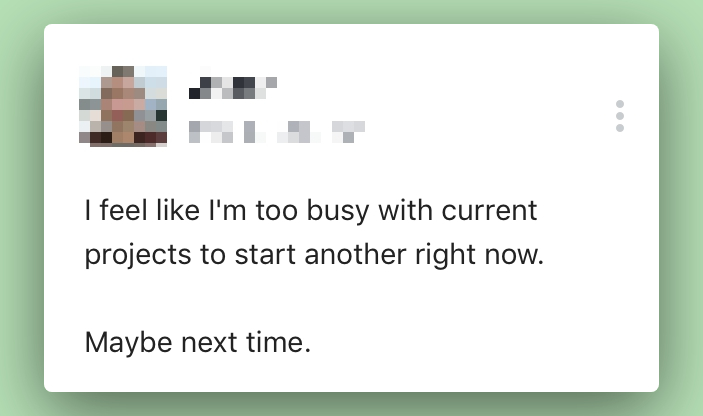
If that’s you, you should hear how our students and team get past being busy and start taking action (even if you never join Bot Academy).
1. Cut Out Obstacles
“I believe it was in the book ‘Good to Great’ where the author said that to succeed you need to decide what you are going to stop doing as much as focusing on what you are going to do to succeed.
“So I stopped doing meaningless stuff, like playing video games or watching TV. You would be amazed at how much time is freed up when you look at what you are going to stop doing in order to succeed.” – Sean Elliott, Bot Academy graduate.
I found the section he referred to:
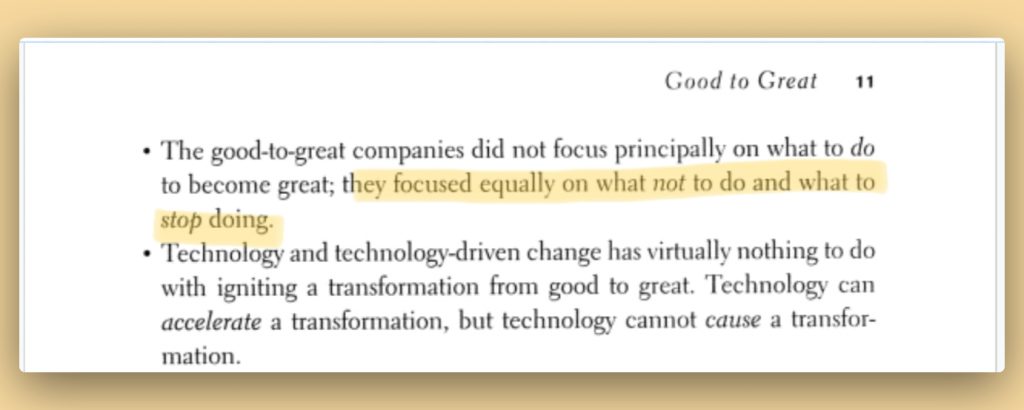
This worked for the world’s greatest companies. What activities can you cut out or cut back on to free up time in your own schedule?
2. Find Your Free Hours
Once you decide what obstacles to cut out, it’s time to look at your schedule.
No matter how busy you are, we’re willing to bet you have at least a few free hours in your week to dedicate to a chatbot business.
Hint, you may be spending them sleeping.
Can you stay up a couple of hours later to work on chatbots like our student Jaime Greene did?
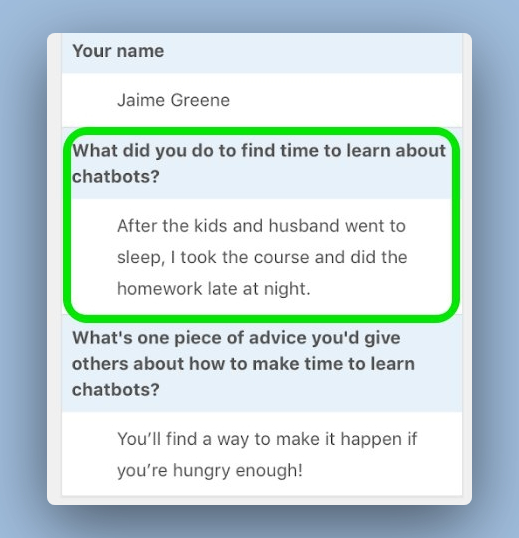
Or you may want to go the opposite route and wake up an hour or two earlier to focus on chatbots before your mind gets bogged down with to-dos.
If you do daily battle with the snooze button and struggle to get out of bed, give the free Kiwake app. One of our team members, Jordyn, has used it for years and said it’s the one thing that finally broke her lifelong snooze habit.
It uses a three-step alarm to wake up your body, mind, and motivations, and you can’t turn off the alarm without completing all three steps or uninstalling the app!
The first step is to take a picture of an object far away from your bed (like your coffee pot), followed by a mini-game, and finally, you read your list of goals to start the day driven and inspired.
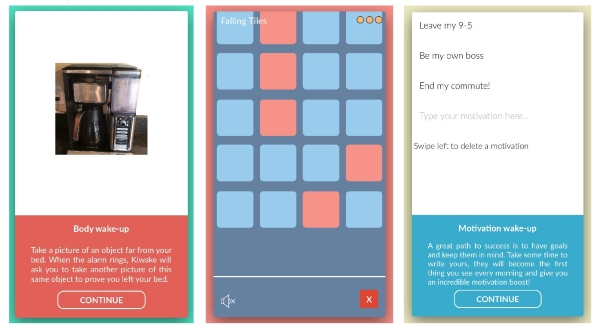
3. Create a Dedicated Work Space
Do you ever sit down at your computer to focus and then find yourself opening up Twitter or going through that pile of junk mail?
How about finally getting in the zone and then one of your kids or your partner pops in the room to ask you a question or tell you a story?
These disruptions can make you feel even busier than you are and get in the way of working efficiently in the time you do have.
To overcome this, one of our graduates turned his shed into a home office for a distraction-free, Bot-Academy-study zone while his kids play outside.

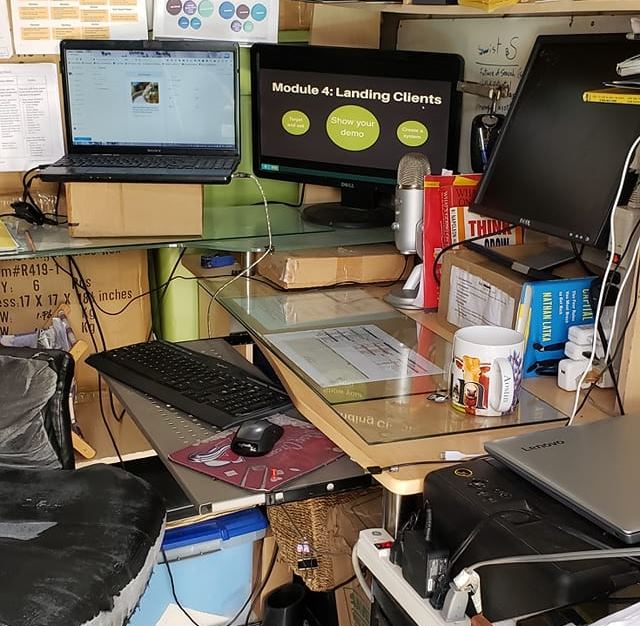
If you don’t have a whole room to turn into an office, you can pick the dining room table, find space for a desk in your room, or even just choose a specific chair to sit in when it’s time to focus.
The goal is simply to have a dedicated space where your mind can go into business mode and your family knows you are “off limits” for interruptions.
4. Track Your Hours
Now that you know what you’re cutting out, when you’re working, and where, it’s time to track your hours to make sure you’re hitting your goals.
You may think you know how much time you’re putting into chatbots (or any other project) but without data, you don’t really know.
Sean Elliott from step number one also shared some great advice about setting time goals and using Toggl as a free accountability tool.
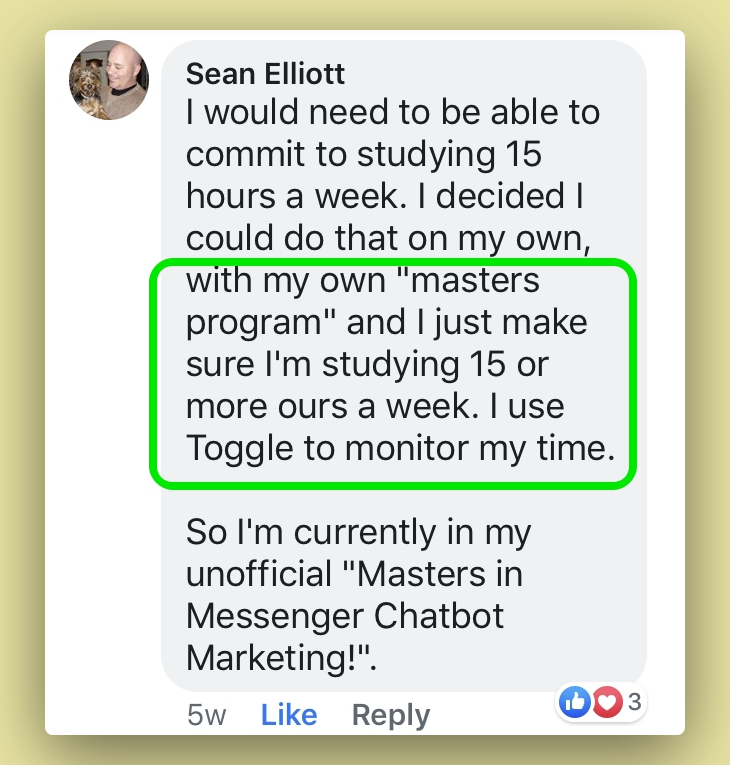
With Toggl, you can start and stop tracking with their one-click timer or enter time manually, then view your reports to see what you worked on and for how long.
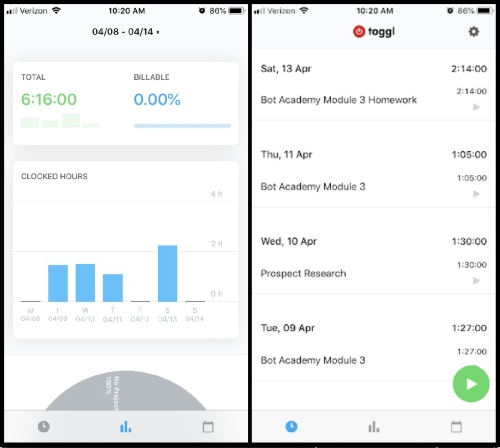
If you’re struggling with step number one, cutting out obstacles, you can even use Toggl’s mobile app to track how long you’re watching TV or scrolling social media to help you get more realistic about the time you can free up.
Time tracking can also help you figure out how long it actually takes you to complete certain tasks.
Did you set aside three hours to build out a new growth tool and it only took you two? Great, now you can plan more accurately next time and know how much to quote your next client.
Did you know that simply writing down your goals makes you more likely to achieve them?
According to neuroscience studies, people who put their goals in writing are anywhere from 1.2 to 1.4 times more likely to successfully accomplish them.

What goals motivated you to start a chatbot business in the first place?
Is it finally leaving a job you despise so you can set your own schedule and spend more time on the things that matter most to you?
How about increasing your earnings for financial freedom? Or doing work that actually excites you every day?
Put them in writing (or digital writing) and read them to yourself every day!
If you need a little inspiration, here are a few of the goals (and the motivations behind them) that real people who joined our course wrote.
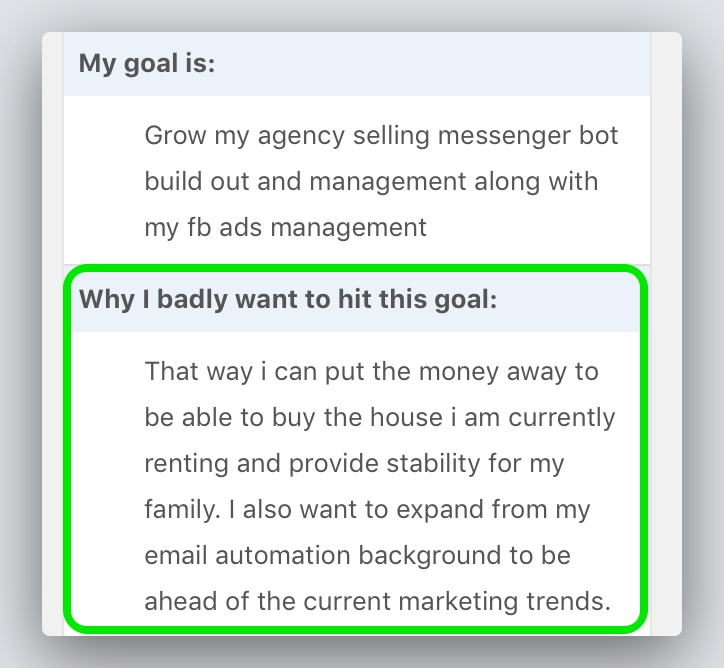
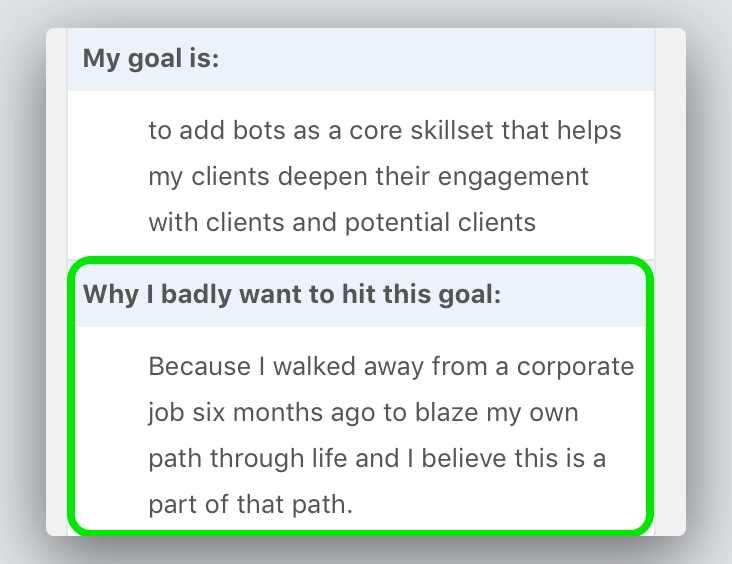
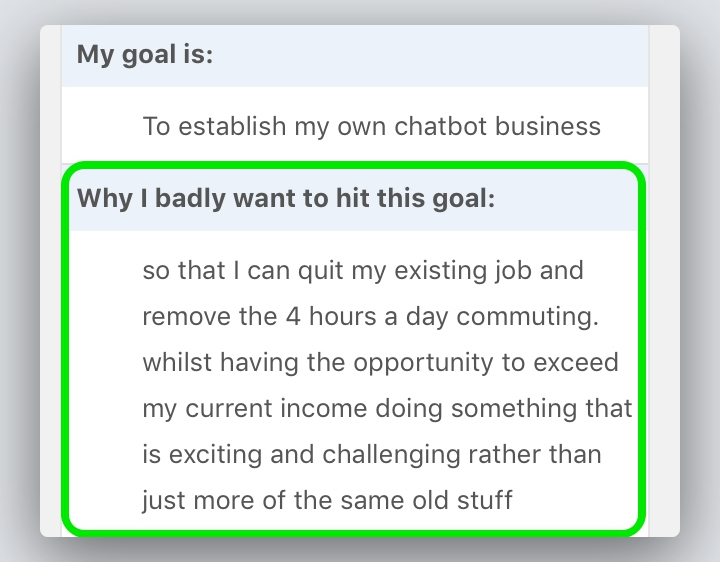
No matter what’s driving you or what your goal is, focus on what succeeding will mean for your life and use that for an extra push to keep going when you need it.
Join our free webinar to discover exactly how to build your first bot and start landing clients.

